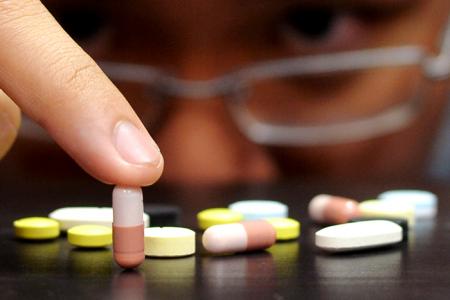More Singaporeans are self-medicating
More people in Singapore are skipping a visit to the doctor and buying medicines on their own to treat aches and pain, with pharmacies selling more non-prescription medicines for such ailments.
Three major pharmacy chains here, Guardian, Watsons and Unity Pharmacy, told The Straits Times that they have seen increased sales of common pain-relief medication, such as Panadol and Nurofen.
A spokesman for Guardian said the sales of oral and topical pain-relief products have increased by about 4.6 per cent since the start of this year.
At Unity Pharmacy, sales of oral painkillers so far this year have grown by double digits over the same period last year.
All three chains said sales of these medications have gone up over the last three years, but did not provide detailed figures.
Pharmacists say the trend of self-medication is driven by the ease of online self-diagnosis and availability of more non-prescription painkillers.
SIMPLE AILMENTS
"Self-medication is useful to prevent and treat simple ailments," said Ms Boon Choon Pei, senior pharmacist at the National University Hospital. "When done right, it reduces unnecessary medical consultations and reduces pressure on medical services."
The Health Sciences Authority (HSA) has also reclassified several pain-relief medication from the prescription to non-prescription category since last year.
A HSA spokesman said this year, Acustop (flurbiprofen) Plaster was reclassified from prescription-only to pharmacy-only medicine - meaning it can be used under the supervision of a pharmacist; while Kefentech (ketoprofen) Air Plaster went from pharmacy-only medicine to the general sale list.
Last year, another two medicines - Nurofen (ibuprofen) Tablet and Nurofen Express (liquid capsule and caplets) - had also been reclassified to the general sale list.
There are now nine pain-relief medicines available without a prescription, added the spokesman.
But pharmacists say self-medication should not be a cure-all. "Some simple conditions which may seem benign initially may turn complicated despite self-medication," said Ms Boon.
"Inappropriate self-medication can thus be dangerous as it can lead to delay in diagnosis and treatment."
Patients may also get their medication from more than one pharmacy, she said, and run the risk of side effects from mixing different drugs.
Dr Yeo Sow Nam, director of The Pain Specialist, a private clinic, said: "When in doubt or when the duration (of pain) exceeds two weeks and it is more severe than mild... seek a physician's advice."
Get The New Paper on your phone with the free TNP app. Download from the Apple App Store or Google Play Store now

